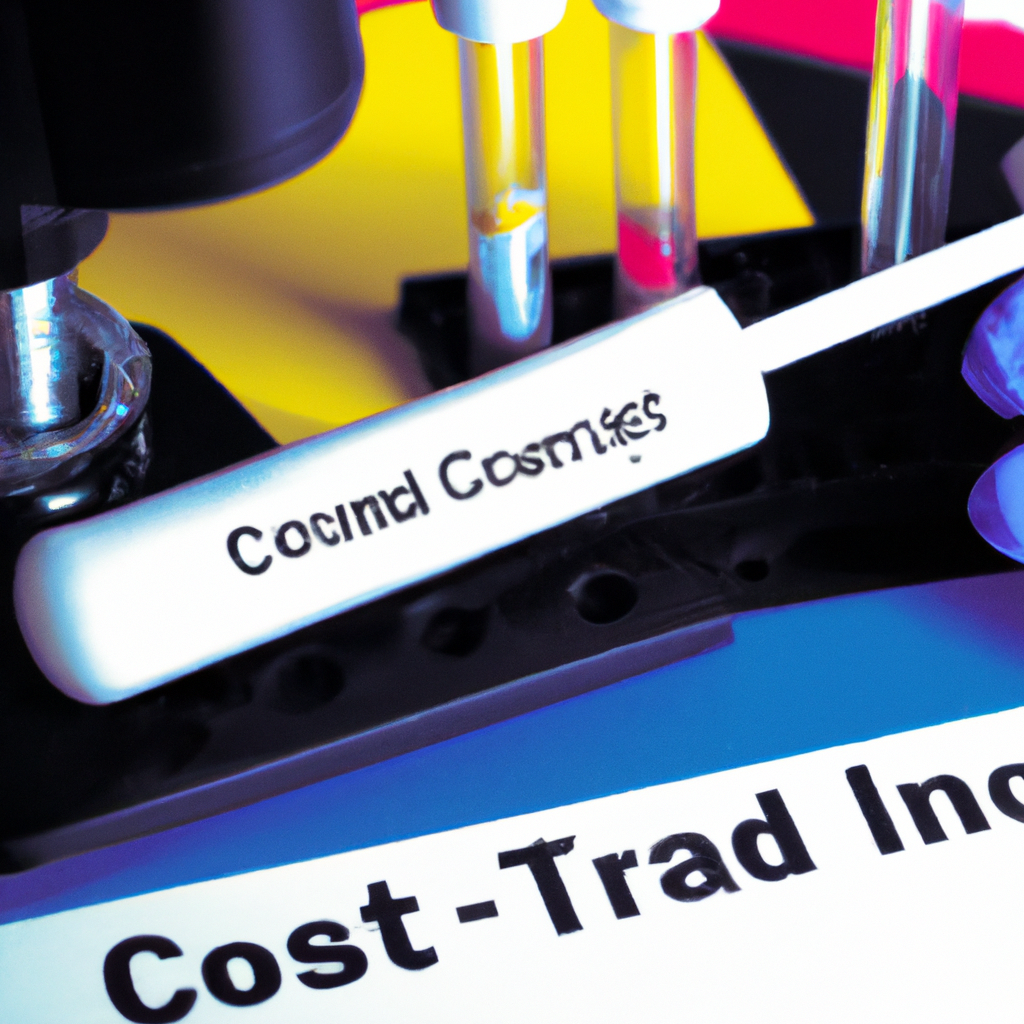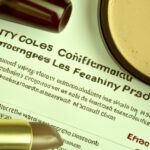Luxury Cosmetics: Exploring the Issue of Testing in Developing Countries
As luxury cosmetics and skincare brands continue to expand beyond domestic markets, a unique issue has arisen within the industry—the issue of cosmetic testing in developing nations. This controversial topic has been a source of debate for many years, as consumers and stakeholders strive to find a balance between safety and access to affordable beauty products. In this article, we’ll discuss the dynamics of cosmetic testing in developing countries, including the ethical implications, implications for the industry, and how manufacturers can continue to develop high-quality products without compromising ethical standards.
About Cosmetic Testing
Cosmetic testing is the process of ensuring that a product is safe and effective before it can be released to the public. As cosmetics and skincare products become increasingly popular, companies must be able to demonstrate that their products are reliable and free of any potential harm. In the United States, cosmetic testing is regulated by the Food and Drug Administration (FDA) and guided by the Federal Food, Drug and Cosmetic Act (FFDCA). These laws outline testing requirements and set standards of safety that must be met before a product is approved for sale.
Cosmetic Testing in Developing Countries
Cosmetic testing in developing countries often poses unique ethical challenges. With many populations lacking access to quality healthcare and resources, testing cosmetic products on humans can raise serious ethical dilemmas. Not only are there questions about whether the benefits of the testing outweigh the risks for the participants, but there is also the potential for exploitation and mistreatment of those who are volunteering for the tests.
Additionally, in many parts of the world, there are few regulations surrounding the testing of cosmetics and skincare products in humans. This means that companies may be performing tests with limited oversight or guidance from governing bodies, which could put participants at risk. Companies may also be more likely to use testing practices that are more efficient but provide less safety or efficacy assurance.
Implications for the Industry
The ethical implications of cosmetic testing in developing countries can have significant implications for the industry. Companies that perform testing in countries with fewer regulatory safeguards or oversight may struggle to demonstrate their commitment to high-quality products. This could lead to problems with customers, investors, or even the legal system.
In addition, the implications of ethical violations can reach beyond the company itself. Poor testing practices can lead to negative products and adverse health impacts on consumers. This can result in more serious lawsuits and even criminal charges, which could lead to losses of millions of dollars. For this reason, companies must be careful to ensure that their testing practices are up to date and that they are meeting all applicable regulatory requirements.
Creating Quality Products Without Compromising Ethics
Ultimately, luxury cosmetic brands have a responsibility to their customers to ensure that their products are safe and effective. While ethical considerations should be taken into account when performing tests in developing countries, it is possible to develop quality products without compromising safety or ethical standards.
One way that companies can do this is by focusing on research-based methods of testing. This includes using literature reviews and studies to assess the safety and efficacy of products before exposing humans to them. By relying on evidence-based research, companies can ensure that their products are safe and effective without compromising ethical standards.
Additionally, companies should consider using alternative methods of testing, such as in vitro or computer models. These approaches can provide accurate information about the safety and efficacy of a product without the need for testing on humans. Companies should also consider having independent parties perform the testing or reviewing processes, as this can help to ensure that the tests are ethical and unbiased.
FAQs
Why is cosmetic testing in developing countries a controversial issue?
Cosmetic testing in developing countries can be a controversial issue due to the ethical implications and potential for exploitation and mistreatment of participants. Additionally, the regulatory framework around testing in many developing countries is often more limited, which can lead to safety and efficacy issues with the products being tested.
Are there ethical alternatives to cosmetic testing in developing countries?
Yes, there are ethical alternatives to cosmetic testing in developing countries. Companies can focus on research-based methods of testing, use alternative methods such as in vitro or computer modeling approaches, or have independent parties perform the testing or reviewing processes.
What are the implications of unethical cosmetic testing?
The implications of unethical cosmetic testing can be far-reaching. Poor testing practices can lead to negative products and adverse health impacts on consumers, resulting in lawsuits and criminal charges. Additionally, unethical cosmetic testing can have an impact on the reputation and trustworthiness of the brand.
Improving Ethical Standards: A Path Towards Responsible Cosmetic Testing
As the beauty industry continues to grow, the issue of cosmetic testing in developing countries has become a matter of intense debate. Balancing the need for product safety with accessibility to affordable beauty products is a challenge that requires careful consideration. In this section, we will explore ways to improve ethical standards in cosmetic testing and promote responsible practices within the industry.
Education and Awareness
Raising awareness among consumers, stakeholders, and industry professionals is crucial in promoting responsible cosmetic testing. Educating the public about the ethical implications and potential risks involved can empower individuals to make informed choices and support brands that prioritize safety and ethical practices. This can be achieved through informative campaigns, public discussions, and collaborations with organizations focused on ethical consumerism.
Collaboration with Local Communities
Engaging with local communities in developing countries is essential to ensure that cosmetic testing practices are conducted ethically and transparently. Collaborating with local healthcare providers, NGOs, and community leaders can help establish guidelines that protect the rights and well-being of participants. This collaboration can also foster mutual understanding and address concerns specific to each region, creating a more inclusive and culturally sensitive approach to cosmetic testing.
Strengthening Regulatory Frameworks
Developing countries often lack robust regulatory frameworks for cosmetic testing, leaving room for potential exploitation and inadequate safety measures. To address this issue, it is crucial for governments and regulatory bodies to establish comprehensive guidelines that align with international standards. Implementing stringent regulations can ensure that cosmetic testing is conducted responsibly, with clear protocols, monitoring, and enforcement mechanisms in place.
Investing in Alternative Testing Methods
Advancements in scientific research have paved the way for innovative alternative testing methods that reduce the reliance on human participants. Companies should invest in the development and adoption of these methods, such as in vitro models and computer simulations, which provide accurate data on product safety and efficacy. Embracing these alternatives not only minimizes ethical concerns but also enhances efficiency and cost-effectiveness in the testing process.
Transparency and Independent Verification
To enhance trust and credibility, cosmetic companies should strive for transparency in their testing practices. Providing detailed information about testing procedures, including the use of independent third-party verifiers, can reassure consumers that ethical standards are being upheld. Independent verification ensures that testing processes are unbiased, objective, and adhere to established guidelines, further promoting accountability within the industry.
Collation of Best Practices
Creating a platform for sharing best practices in ethical cosmetic testing can facilitate industry-wide learning and improvement. Establishing forums, conferences, or online platforms where experts can exchange knowledge, insights, and success stories can foster a culture of continuous improvement. Encouraging collaboration and open dialogue allows companies to learn from one another and implement more effective and responsible testing practices.
By adopting these strategies, the cosmetics industry can forge a path towards responsible and ethical cosmetic testing. Prioritizing the safety and well-being of participants, while simultaneously ensuring product quality, is key to cultivating trust among consumers and establishing the industry as a leader in responsible innovation.






